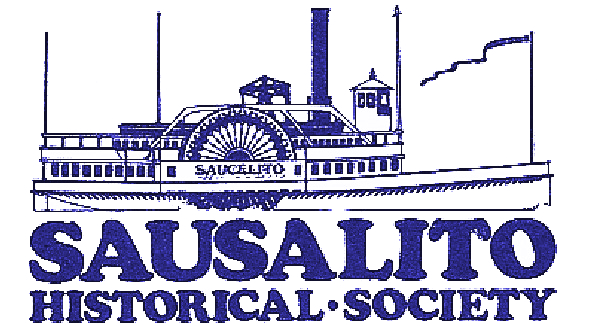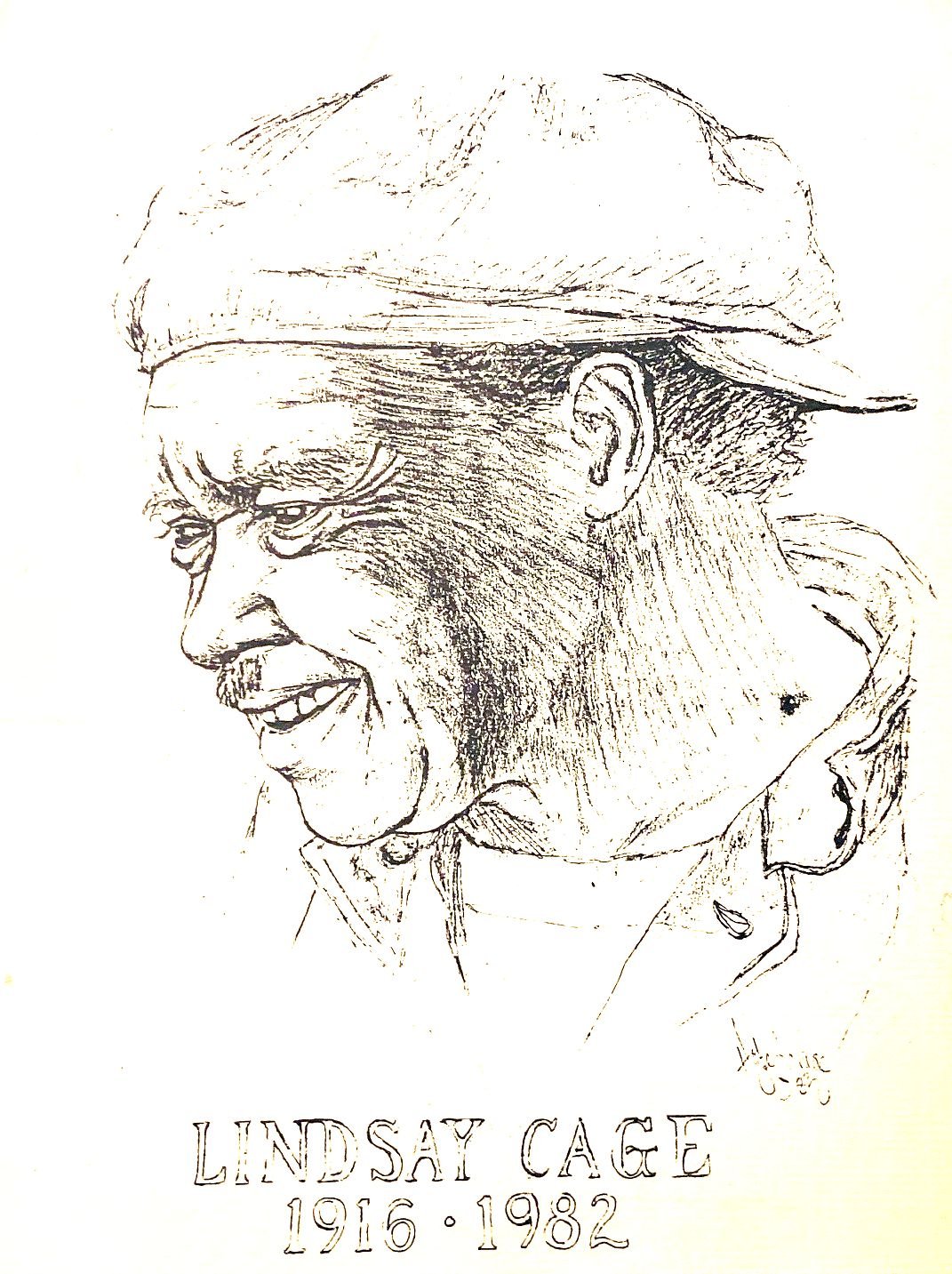By Larry Clinton, Sausalito Historical Society
SKETCH BY HOPE SAVAGE
Lindsay Cage, a hero of the waterfront
We’ve occasionally referred to Donlon Arques as the “Godfather of the Waterfront,” but there’s another man who was known by that honorific title back in the 60s: Lindsay Cage.
Lindsay came to Marin County from his native Louisiana to work at Marinship and settled in Marin City.
According to waterfront historian Krystal Gambie, after the war he operated auto repair shops in both Marin City and Sausalito before becoming the first African American to have a Yellow Cab license in Marin.
Eventually he went to work for Arques, who had acquired significant portions of the Marinship site, which was littered with surplus materiel after the war. “Lindsay Cage was loved by a good many people,” recalls Bob Darr, a founder of the Donlon Arques Historical Research Project. “I met him in my teens in the mid-1960s while wandering the Arques property.”
When Lindsay died in 1982, two waterfront residents, Jean Lamb and Shelley Winn, wrote the following tribute to him in this newspaper:
Lindsay Cage, resident of Gate 3, former operator of Marin City flea market, died unexpectedly of a heart attack early evening December 13, 1982. Mr. Cage left behind 7 children, 30 grandchildren, and 4 great-grand-children. For about 25 years, Cage operated a scrap business from Mr. Don Arques' property, took care of his own family, and — most importantly to us — became the godfather of the waterfront. For Lindsay, and us, this meant adding multitudes of brothers, sisters, and children to his family. Lindsay was 66 — not old, not young — but, during his time in Sausalito (since WWII), he became a living legend. Couples with problems, singles with problems, derelicts, anyone wanting some soul solace came to Lindsay. As Robbie Robison said, “you could hate yourself, and hate the world, and come to Lindsay — within 5 minutes, you would be healed and be able to face the world again.” This man had a gift of communication, love, and realism which transcends description. Lindsay, “The Junkman,” had not only a wealth of unusable (to some, but not all) objects, but a wealth of love. Lindsay Cage operated his scrap yard on the waterfront at Gate 3 for over 40 years. If you needed a new coil for your water heater, he could find it. “How about 15¢? If you don’t have it, pay me later.”
Although residential use of the waterfront was frowned upon, many children were born in the area and all became “Lindsay’s kids.” Never a Christmas went by without a present (up to 30 any given year) for waterfront children from Lindsay and his companion, Albertha. Never did a moment go by that a child couldn’t come to Lindsay and speak with him. Never could a child pass Lindsay without him giving a kid a piece of gum. (Lindsay loved dentists!)
Lindsay didn’t spend all of his time scrapping metal and buying Christmas presents for kids. He was the “Sage of Gate 3”, allowing all to come and discuss their problems with him. But all was not problems. Mr. Cage had an incredible wit and sense of humor. Lindsay to a rather rotund man, whilst patting his tummy, “What are you building, a steak graveyard?”
To a young child who was a few days remiss with an obligation, “bring your list back, you gotta learn how to conduct business as a young lady.” None of these really bring home to those that don’t know Lindsay how truly beautiful a person he was, and still remains in the hearts of those who knew him.
A legend in Sausalito has left us. Here we are, looking at his junkyard, fighting and being upset about office buildings and such. And Lindsay’s gone. Since the advent of development of Sausalito, many people didn’t know Lindsay if they lived south of Napa Street. Development was pushing him out, not fast, but his scene was going. He left us, lovingly and in a strong and noble way. On the day of his death, responding to a question of “how ya doin’? ” he retorted “still kickin', but not too high.” It’s up to us, we who received his legacy, to kick as high as we can.
The tribute included this contribution from an anonymous poet:
Thank you my friend for the thoughtful advice
for
when I was confused and unaware
the warm hand on my shoulder when I was afraid
the engineering genius when I was building my boat
the lift when I needed one over a ton
the dad when I never had one
the philosophy and wit to guide
and brighten my day
the eloquent dissertations on racism
and its role in modern society
the many materials from your
salvage yard to build our fishing boats and cooperative work shop
at Gate Three
and most of all thank you for all
the kindness and love you have given us all Mr. Cage
we will never forget you old friend
and will miss you now that you are
gone.
Today, Lindsay’s youngest son, Raymond, is the chief researcher for the Arques Historical Research Project, which has preserved hundreds of files and documents concerning Don Arques and his family’s waterfront properties, and their various shipyard enterprises. We’ll have more about the project, which is housed at Spaulding Marine Center at the foot of Gate 5 Road, in another column.

